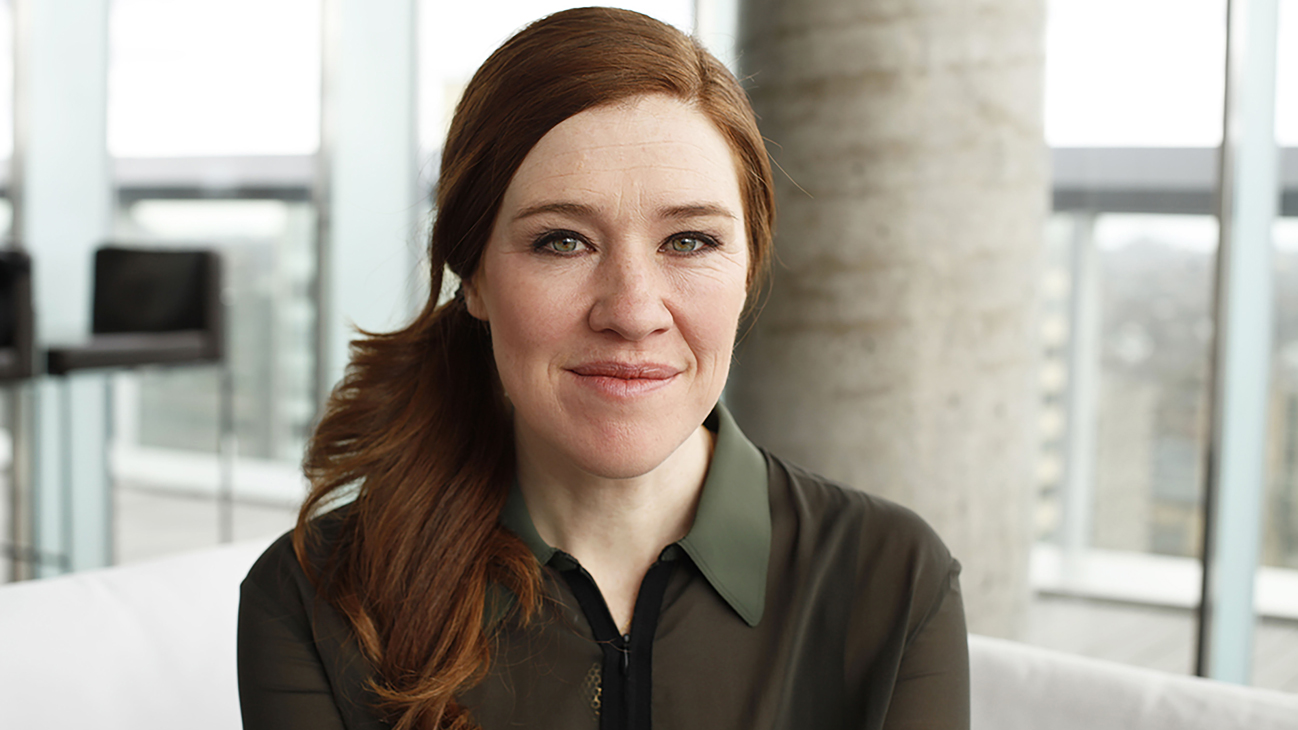As the founding spokesperson of Bell Let’s Talk, Olympian Clara Hughes has become a beacon of hope and support for those struggling with their mental health. Through sharing her own experience with depression, she jumpstarted a national conversation on mental wellness and helped to break down the stigma surrounding mental illness.
Clara recently spoke with Elle magazine on toxic positivity and its debilitating effects on our mental health as individuals and as a society. She defined it as “an unrealistic view of being human” by only expressing oneself through positivity instead of the whole human experience; focusing on the successes instead of the struggles it took to get there. She added that we often not only impose it on ourselves but others as well.
Drawing from her own experience with toxic positivity throughout her personal life as well as her Olympic journey, Clara shared how we can counteract it within our lives and learn to embrace both vulnerability and discomfort for a happier life. Read Clara’s Q&A below.
Elle: What do you think is the root of toxic positivity?
Clara: I think it’s our culture. It’s largely rooted in the ideology of what you have is what you are. What you own and what you show is the substance of your being. That’s your worth as a human being. We’ve been living with social media for a long time, and it has evidently changed the way we present ourselves. With these curated ways of showing ourselves how good, successful, and happy we are, we live in a society that praises all of that and does not embrace the struggle of how far we’ve come. We’ve been conditioned to not accept the whole of ourselves. Which is a very dangerous and lonely place to be.
E: Why do you think most people are afraid to face how they really feel?
C: I think we’re afraid of rejection. We’re not comfortable being vulnerable. I look at so many young people I know who are dealing with serious and severe anxiety because they’re afraid of failing. They’re afraid of not being enough in everything that they do. I don’t care who you are, no matter how much you have. No matter if you have an abundance of everything, you are a human being. You are still going to want to express yourself and your struggles. If you don’t, it becomes buried inside. In ways, it becomes a form of trauma, and if you don’t acknowledge that, it can manifest in forms of psychological and physical illness.
E: You’ve dealt with depression yourself; how much do you think toxic positivity contributed to it?
C: Internally, I’d have that inner dialogue that would say that I was okay. That I just needed to train harder or win another race and I’d be fine. And by doing that, I did not allow myself to be helped or start earlier than I was finally able to acknowledge that I needed it. All in all, I would say it was that internal voice of toxic positivity which was just a response to not dealing with early childhood trauma. Which felt like a lifetime for me to unpack.
E: How would you define healthy positivity?
C: I think it’s being self-aware. It’s being present if somebody is looking to you for guidance or looking to you for input. I think when you’re in that moment and you’re really listening in a non-judgemental, you can come to a place of appropriate encouragement. I know we want to be the one that helps someone. It feels good. You feel a responsibility to. But not everybody is looking to be helped. Many of us are just looking to be heard.
E: Why is it important for us to feel negative emotions rather than avoid them?
C: Because if you don’t allow these emotions to move through you without any acknowledgment, you don’t allow yourself to live them and be them. They’re not going anywhere until they’re acknowledged. In 2018, I went on a long-distance hike at the Continental Divide Trail for 137 days. It really taught me to just move through my emotions as they come. I came to be able to process the difficult emotions, experiences, and trauma that lived inside me. I didn’t have anything or anyone to distract myself with or blame, or to deflect everything onto. I was doing it the way I never thought possible, and it was really beautiful.
E: What are your tips when it comes to repairing our relationship with our most uncomfortable emotions?
C: I think I’d encourage people to find a place that is safe for them to find. The space they can be themselves and be curious about it. It can be through a form of movement or self-expression like creativity, writing, or drawing, or it can be in a group in a circle with support or it can be alone. I always encourage people to be curious about this and to read about it. Expose yourself to other people’s stories, so you can root into your own story and truth.
Clara Hughes is the only athlete in Olympic history to win multiple medals in both summer and winter Games. In her candid and intimate keynotes, the six-time Olympic medalist draws from her experience living with depression to inspire audiences to face their fears, find their voice, and become the champions they’re meant to be.
Interested in learning more about Clara and what she can bring to your next event? Email us at [email protected].




